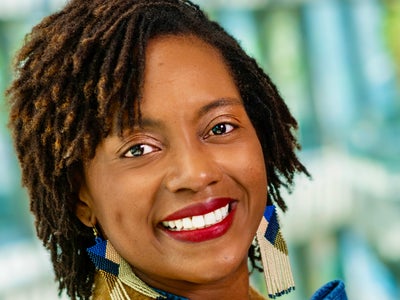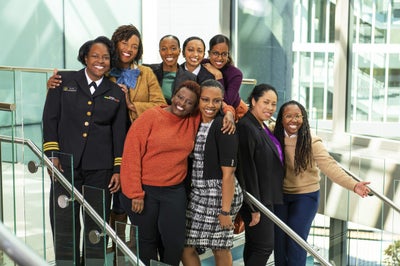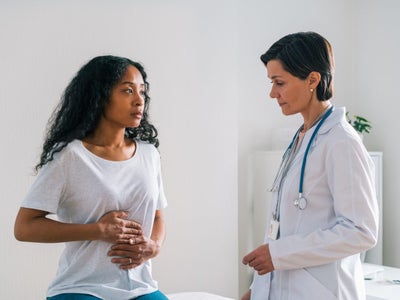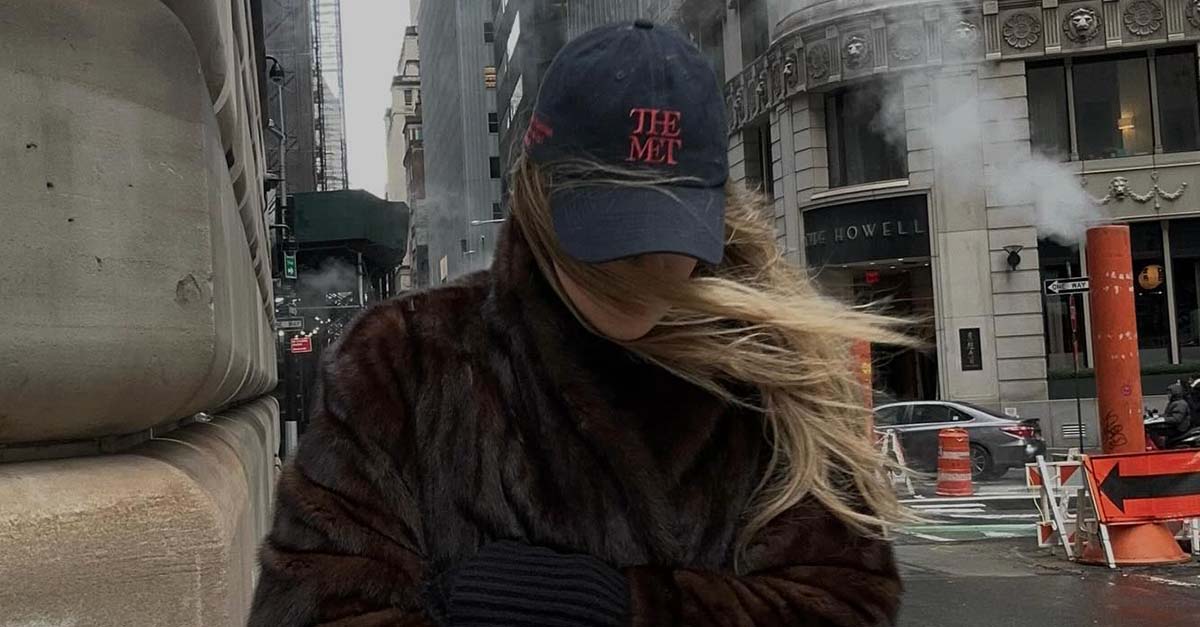
For more than 70 years, the Centers for Disease Control and Prevention (CDC) has put science into action to protect the public’s health. For nearly as long, this federal agency has sponsored a program that trains disease detectives to be future CDC leaders.
CDC missions rely on a diverse, flexible, and highly trained public health workforce.
Keisha Lindsay Nurse, Ph.D., shares how she and her colleagues in the class of 2022 will make a positive impact on policies and programs that help prevent diseases and protect communities.
“The CDC is the nation’s leading science-based, data-driven, service organization that protects the public’s health. The EIS program is a globally recognized fellowship that trains officers to investigate and respond to a wide range of public health challenges and emergencies,” she says. “EIS has trained generations of public health leaders, including four of the last 10 permanent CDC directors. Other EIS alumni have gone on to serve as surgeon generals, directors at the World Health Organization, senior scientists at the CDC, city health commissioners, and state epidemiologists.”
The women of various heritages and backgrounds in the current EIS class help to fulfill one of the CDC’s clear priorities—diversity. That’s reflected in the program’s demographics and the graduates who will build bridges back to their communities. Specifically, Black communities.

“I am proud to be part of the largest class of Black women EIS officers – ever,” Nurse says. “We come from different career backgrounds — nursing, epidemiology, medicine, veterinary medicine. From different places, including rural and urban areas of the United States, Trinidad and Tobago, Canada, and Kenya.”
“Black women are at the center of many public health conversations and crises, such as the concerning Black maternal mortality rate,” she adds. “Having Black women gain the training of EIS offers positions us to become public health leaders who drive the systemic changes needed to improve the health of Black women, Black communities, and our nation.”
The academic and career achievements of each EIS participant uniquely contribute to their great potential for becoming outstanding public health leaders.
“The beauty of EIS is that there is no typical path,” says Nurse. “I was born and raised in Trinidad and Tobago and immigrated to New York City at age 13. I have a B.S. from New York University in speech-language pathology and audiology, an M.A. from Queens College, a Ph.D. from Howard University and did a postdoctoral fellowship at NYU.”
“I began my career as a speech-language pathologist in New York and then returned to Trinidad and Tobago to serve my homeland and other English-speaking Caribbean nations,” she adds. “I planned on going into academia in speech-language pathology or assuming a clinical leadership role after my postdoctoral fellowship. That path changed, partially due to my interest in learning more about how to document health disparities to lead to better health for all.”
So how do people like Nurse find this kind of opportunity? She very generously shares her experiences and demystifies the process.
“The short answer? I applied! The long answer is that I sought mentors who are EIS alumni to help me decide if this was the path I wanted to take. These former officers shared their experiences openly. I then took that information to help build my application.”
Lessons learned from the COVID pandemic will influence ways the CDC manages health crises in the future. The women from the EIS will be a vital part of that process and how it affects Black life.
“The COVID-19 pandemic illuminated inequities that have existed for generations. It revealed the known, but often unaddressed, epidemic impacting public health: racism,” says Nurse. “The CDC, guided by current director, Rochelle Walensky, MD, MPH, is undergoing numerous changes to better prioritize public health actions that can help equitably protect and promote the health of the American people. There’s a strong commitment to developing a workforce that reflects the diversity of our nation.”

This generation of EIS officers and future CDC executives will manage public health issues and tackle the epidemics that challenge our communities.
“The work of the Black women in our EIS class reflects the breadth and depth of the work being done at CDC related to epidemics and other important topics. We have worked on the COVID-19 response, the Mpox response and, most recently, the East Palestine train derailment in Ohio,” she says. “We also work on things like how hospital closures impact access to care for women, how where you live influences access to HIV care, and international projects as well.”
Like the graduates who came before them, this EIS class will leave a legacy for those who follow.
“Our path was blazed by Black female EIS alumni. The Black women in our class are proud to build community with each other and serve as mentors to the Black EIS officers who will come after us. It’s important that we see Black women on career paths at organizations like the CDC—career paths that sometimes seem impossible to pursue but are well within reach,” says Nurse.
Those who are interested in learning more and meet the eligibility to apply are encouraged to visit the EIS website for more information about events designed to help you prepare for the application process. Lindsay Nurse and her colleagues will become leaders in public health who are well prepared to make a difference in our lives and communities. You too can have the same impact.








